In addition to providing honest advice, we at AskHELTIE believe it's important to have a wealth of information available for horse owners. This way, you can expand your knowledge and help your horse to the best of your ability. Together, we ensure that horses come a little closer to nature.
Lymphatic system
Digestion
Cleavers
.png)
Cleavers for horses: when and why to use it?
Cleavers (Galium aparine) is a modest plant commonly found along roadsides, in gardens and pastures, but within herbal medicine it is known as a powerful supporter of the body. Cleavers has also been used for horses for a long time, especially when the lymphatic system needs extra support. In this blog, you’ll read about the conditions for which cleavers is commonly used and what this herb can do within the horse’s body.. Digestive support Cleavers is also used to support digestion in horses. The herb has a mild cleansing effect and can be helpful when intestinal activity is sluggish or when waste products accumulate in the body. For horses that are sensitive to feed changes, experience bloating, or show signs of a strained digestive system, cleavers can offer support by helping the body process and eliminate waste products more effectively. Lymphatic system support The most well-known use of cleavers in horses i...
Cleavers
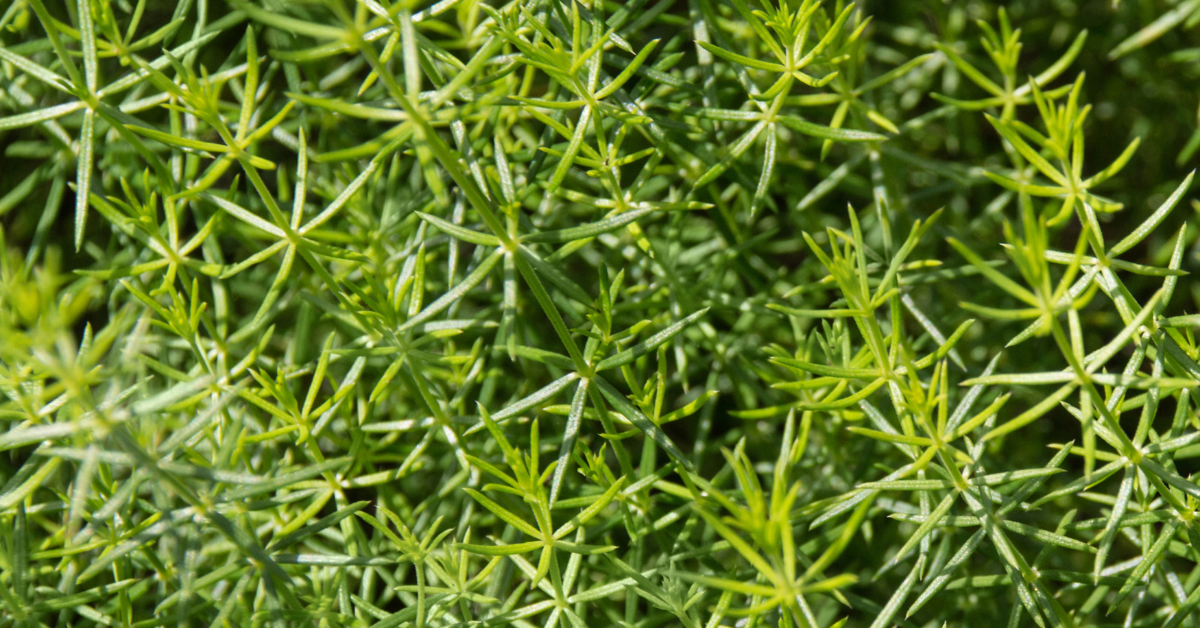
Cleavers for Horses: Natural Support for Wellbeing and Vitality
Horses are animals closely connected to nature and can greatly benefit from herbs. Cleavers (Galium aparine) is one such plant that has been used for centuries in herbal medicine and has also been shown to have various supportive effects in horses.. What are Cleavers? Cleavers, also known as Stickywilly, is a climbing, wild-growing herb often found along hedges and shrubs. It is recognizable by its slightly sticky stems and leaves, which allow it to easily cling to animals and humans. Cleavers contain various bioactive compounds, including iridoids, flavonoids, and organic acids, which contribute to a broad supportive effect within the body. Positive Effects on Horses Research and herbal experience indicate that cleavers can support several...
Joints
Magnesium
Silicon
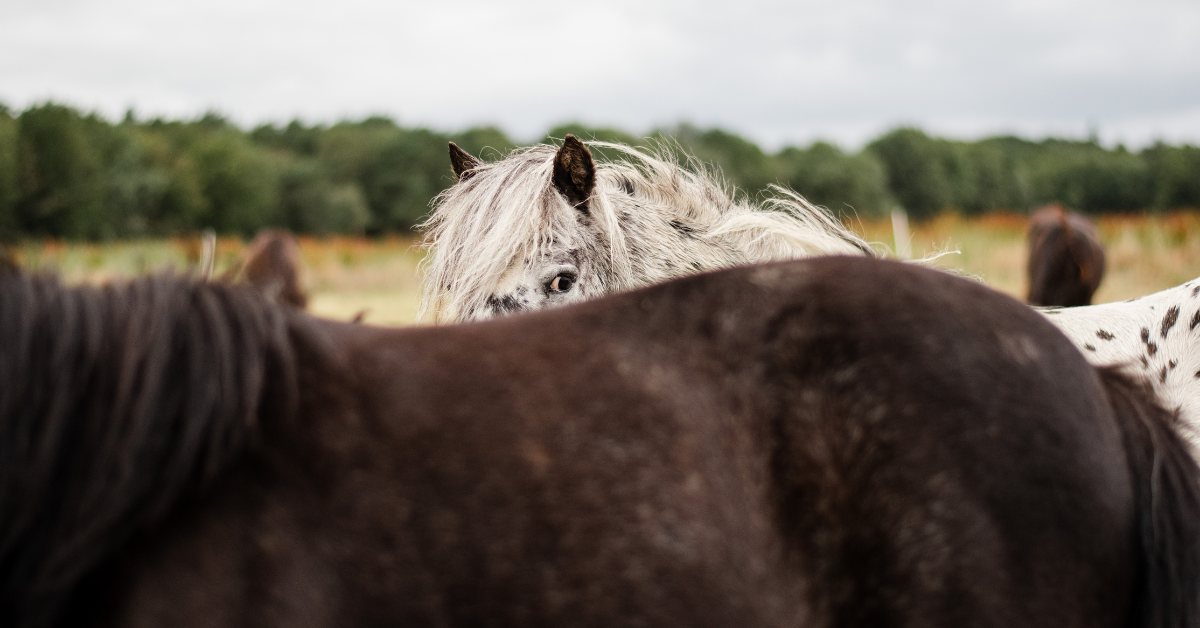
Kissing spines in your horse: what now?
Kissing spines is a commonly mentioned cause of problems in riding horses. But what exactly is it, and what are the consequences of a diagnosis of “kissing spines”? How can you support and manage a horse with kissing spines? And is it still possible to ride after this diagnosis?. The term “kissing spines” often causes a great deal of confusion and concern among horse owners. A few years ago, a diagnosis of kissing spines was usually considered the end of a horse’s active career. Today, we know more about this back condition—but still not everything. Kissing vertebrae? First, the name. “Kissing spines” literally means “kissing vertebrae,” which suggests that the vertebrae themselves are too close together. This is not the case. The condition concerns the dorsal spinous pr...
Joints
Magnesium
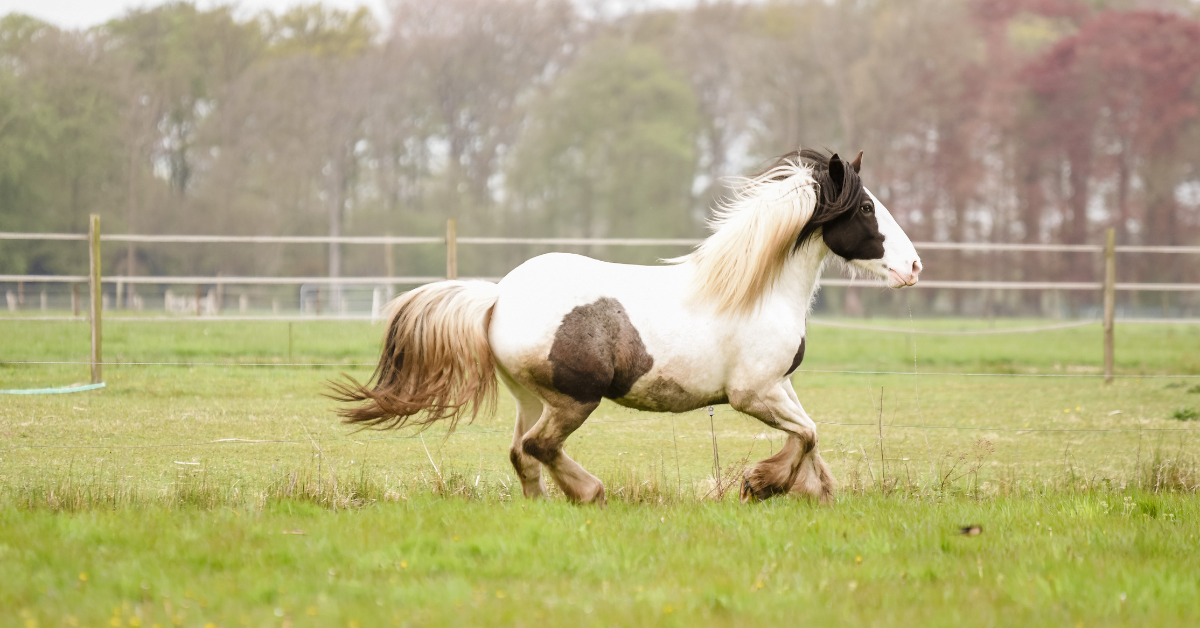
Stiff horse: is it caused by the muscles or the joints?
If your horse is sometimes stiff or needs a bit of time to loosen up at the start of training, there may be several possible causes. Stiffness is not always a reason for concern, but sometimes it is. Do you know where your horse’s stiffness comes from? And what you can do to support your horse?. A horse that comes out of the stable a little stiff or does not move completely smoothly during training may be affected by various issues. If your horse is clearly and persistently irregular in its movement, you should call a veterinarian for a lameness examination. If the issue is mainly “needing to warm up” or occasional stiffness, it is worth investigating the possible cause. Depending on the origin, there are different ways to support your horse. Muscle-related stiffness Stiffness can origi...
Skin
Mites
Welfare
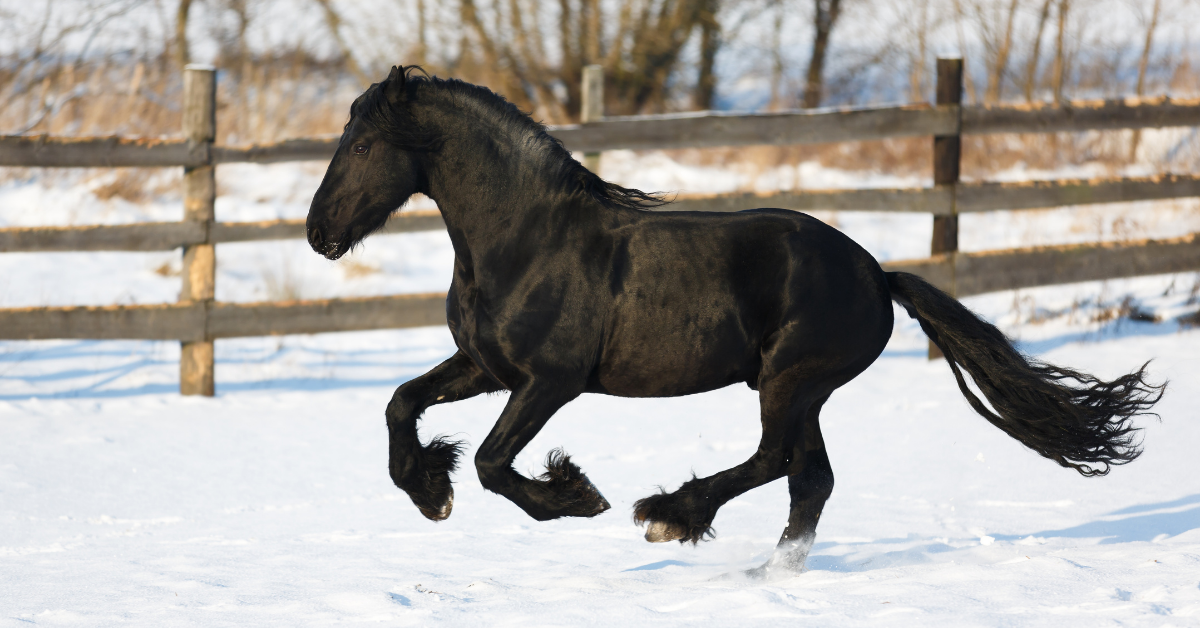
Mud fever in horses – should you clip the feathering or not?
Horses with long feathering are especially prone to mud fever and other skin problems. The long hair makes it difficult to properly monitor the skin underneath and also provides an ideal hiding place for parasites such as mites. At the same time, feathering is beautiful and characteristic of many horses. So the question is: should the feathering be removed when a horse has mud fever?. Mud fever is a collective term for scabs, flakes, swelling and sometimes painful sores on the lower leg and in the pastern area of the horse. It can be caused by prolonged exposure to mud and wet conditions, which weaken the skin and allow bacteria to cause infections. Internal waste products and metabolic imbalance are also major contributing factors. In some cases, a mite infestation plays a role as well. Mites weaken the skin structure of the lower legs, making infections more likely. When th...
Skin
Mites
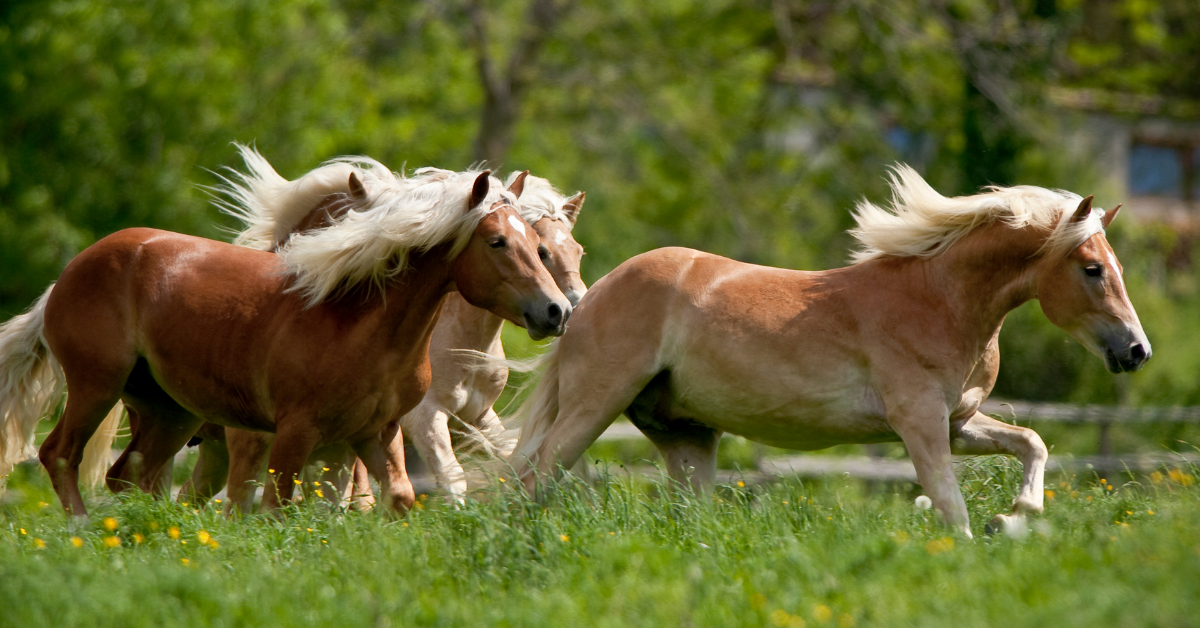
Do only horses with feathering suffer from mites?
Mites are troublesome parasites that can cause a lot of discomfort for horses. The most well-known are leg mites, which are commonly found in horses with heavy feathering, such as draft horses and Friesians. However, horses without feathering can also suffer from a mite infestation!. Not only horses with feathering are affected by mites. Mites can infest all horses, regardless of coat colour or markings. In fact, they are sometimes easier to spot on light-coloured coats or on areas with little hair, such as the legs of a warmblood. Nevertheless, mites occur more frequently in horses with a lot of hair on their legs. Mites thrive in warm, moist environments, and thick feathering provides the perfect hiding place. Additionally, a mite infestation is often detected later in hor...
Skin
Others
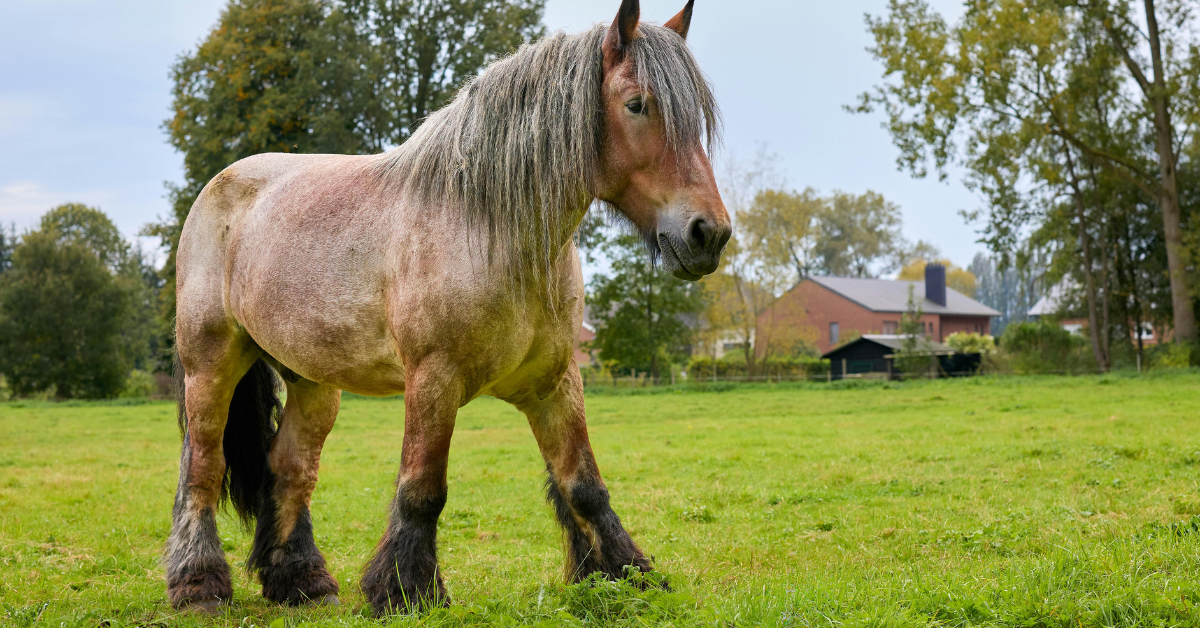
What is the function of feathers in horses?
Some horses have thick feathers on their legs. Some people find this beautiful, while others prefer horse legs to be as bare as possible. But do these feathers actually serve a purpose? And why are they sometimes so thick? You can read all about it in this article.. Feathers are the long hairs that grow on the back of a horse’s lower legs, just above the pastern and the hoof. These hairs are also known as “feathering” or “leg hair.” They mainly occur in certain breeds, such as draft horses and Friesians. In some cold-blooded breeds, the feathers start halfway down the lower legs and can become very dense. Often, the feathers are darker in color than the rest of the coat. Why do horses have feathers? Feathers have a natural function: they protect the lower l...
Hooves
Others
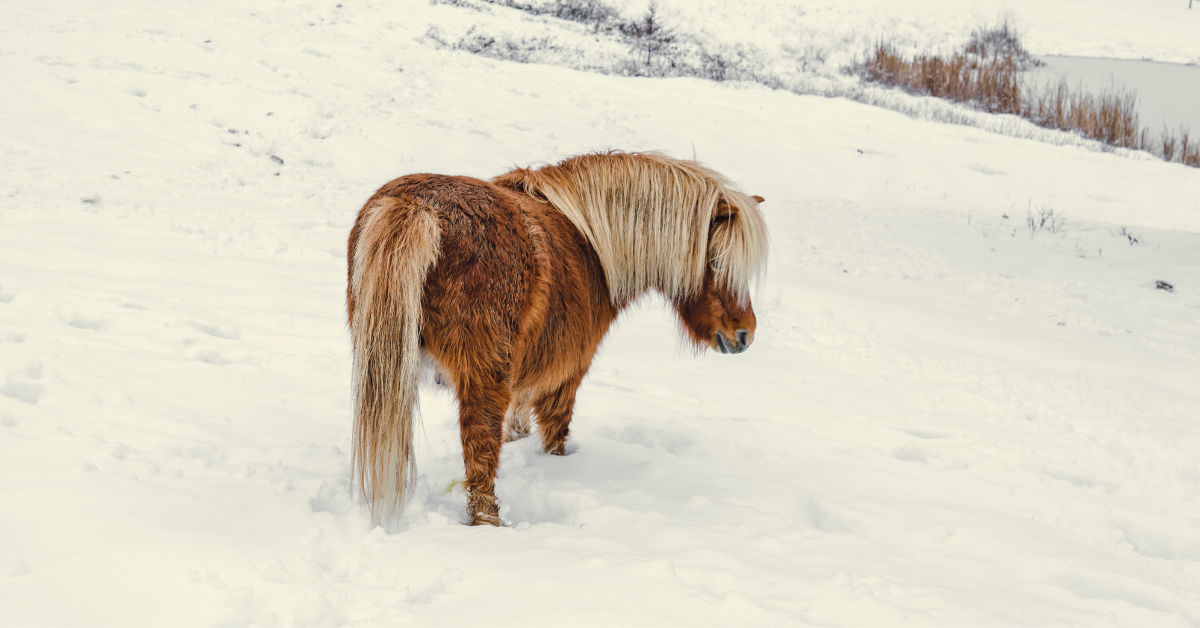
How do you care for your horse’s feathers?
Feathers on a horse can look beautiful and are very characteristic for many breeds. However, to prevent skin problems, mites, or infections, they do require proper care. What is the best way to do this?. It is always advisable to regularly check the lower legs of a horse with feathers thoroughly. Brush and comb the hair well and inspect the skin in the pastern area and underneath the feathers. Problems in these areas are easily overlooked. Washing and greasing? You can wash the feathers occasionally with a mild horse shampoo, but do not do this too often. Excessive washing with soap can make the skin under the feathers more sensitive and removes the natural protective oils. It is especially impo...
Behaviour
Welfare
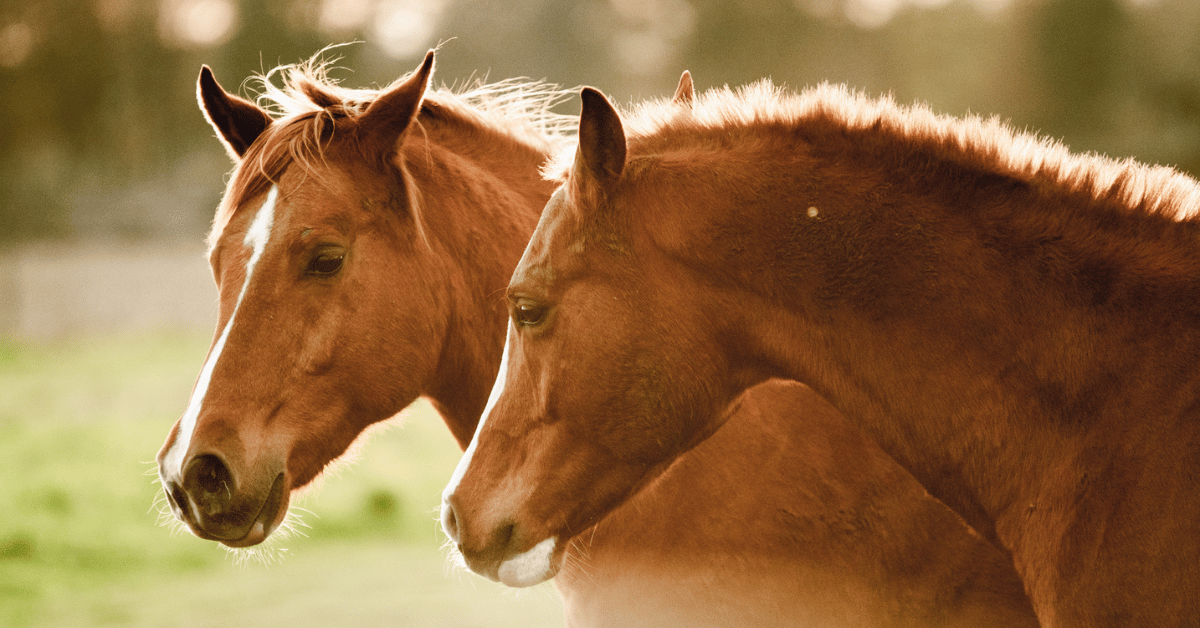
Is Your Horse an “Internalizer”?
Some horses clearly show when they feel stress or discomfort: they become nervous, fidgety, or restless. But there is another group that does the opposite. They tend to keep their emotions and stress inside. These horses are called “internalizers.” They are less obvious, but still need support. In this post, you’ll learn how to recognize an internalizer, which breeds may be more prone, and what you can do as an owner.. What is an internalizer? An internalizer is a horse that does not visibly show stress, tension, or discomfort. Instead of acting nervous, restless, or explosive, they display subtle or minimal reactions. These horses react internally: muscles tense up, they become quieter, eat less or more, or appear “well-behaved,” even though a lot is happening internally. Typical signs of an internalizer: Calm or withdrawn behavior in stressful situations Few visible stress signals, but increased muscle tensi...
Feeding
Resistance
Sea buckthorn

Omega-7 in Sea Buckthorn: Why This Powerful Fatty Acid Is So Valuable for Horses
Sea buckthorn is known as one of the richest natural sources of omega-7. This unique fatty acid is rarely found in other plants and offers specific benefits for the skin, mucous membranes, and the body’s recovery capacity. But what exactly does omega-7 do for horses? And why is sea buckthorn the most natural way to provide this fatty acid? In this text, you’ll learn all about its function, applications, and benefits.. What is omega-7? Omega-7, mainly in the form of palmitoleic acid, is a monounsaturated fatty acid that plays an important role in maintaining healthy skin cells and mucous membranes. In humans, this fatty acid has been valued for years for its supportive effects on the skin, respiratory system, and digestive tract. In horses, omega-7 works in similar ways but is still relatively unknown—unfortunately so, as it can offer significant benefits to the equine body. Sea buckthorn: a unique natural sou...
Skin
Resistance
Sea buckthorn
.png)
When to Use Sea Buckthorn for Horses
Sea buckthorn is a powerful natural ingredient that has become increasingly popular in the equine world in recent years. And for good reason: this plant is packed with antioxidants, vitamins, and fatty acids that can support the body on multiple levels. But when exactly is sea buckthorn beneficial for horses? And why is it preferable to use not only the berries, but also the bark and leaves? This text explains everything you need to know about this versatile herb.. What is sea buckthorn? Sea buckthorn (Hippophae rhamnoides) is a shrub that grows in coastal regions and is known for its bright orange berries. While these berries are rich in nutrients, the bark and leaves also contain valuable bioactive compounds that can support horses. It is precisely this combination of plant parts that makes sea buckthorn so broadly applicable. When is sea buckthorn useful for horses? Immune support Sea buckthorn is well known for its high levels of vitamin C, carotenoids...
Hooves
Clove
Silicon
Diseases
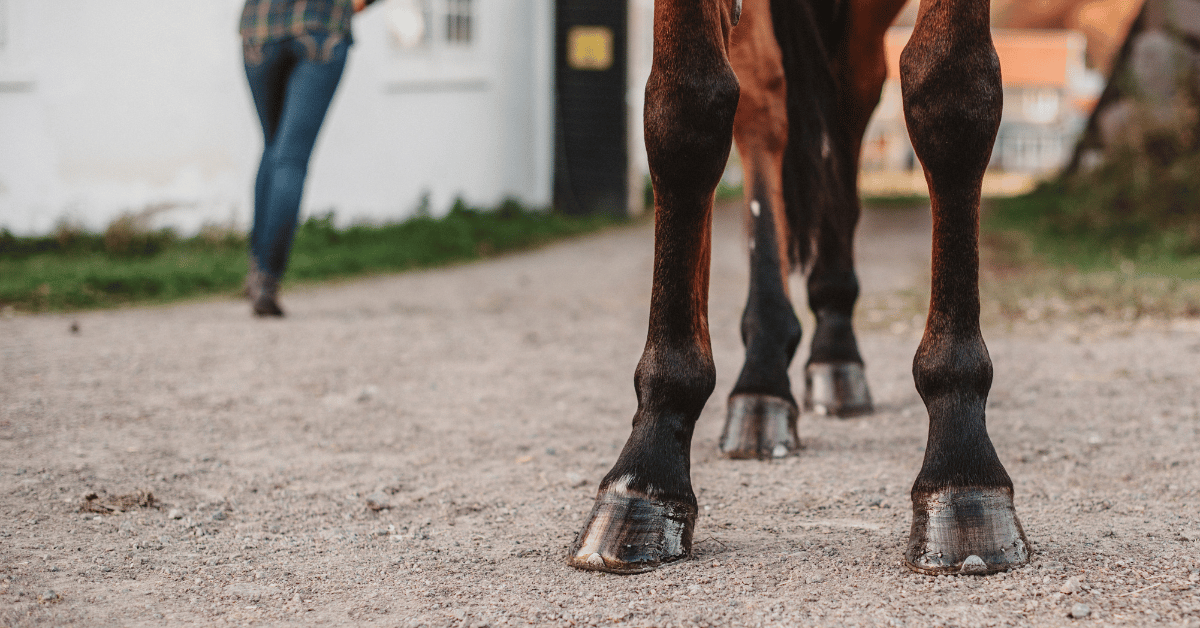
Navicular Disease: What Is It and How Can You Support Your Horse?
Navicular disease is a condition that worries many horse owners. It often causes lameness and reduced performance, sometimes temporarily, sometimes long-term. What exactly is navicular disease, and how can you reduce the risk as much as possible?. Every horse has a navicular mechanism in each hoof. This is not a single bone, but a complex system located in and just above the hoof. It functions like a pulley, distributing the forces placed on the tendons as the deep digital flexor tendon glides over a structure—similar to a pulley system on a boat or crane. What is navicular disease? The navicular apparatus consists of the coffin bone, pastern bone, deep digital flexor tendon, and the back of the navicular bone. A bursa and several support...